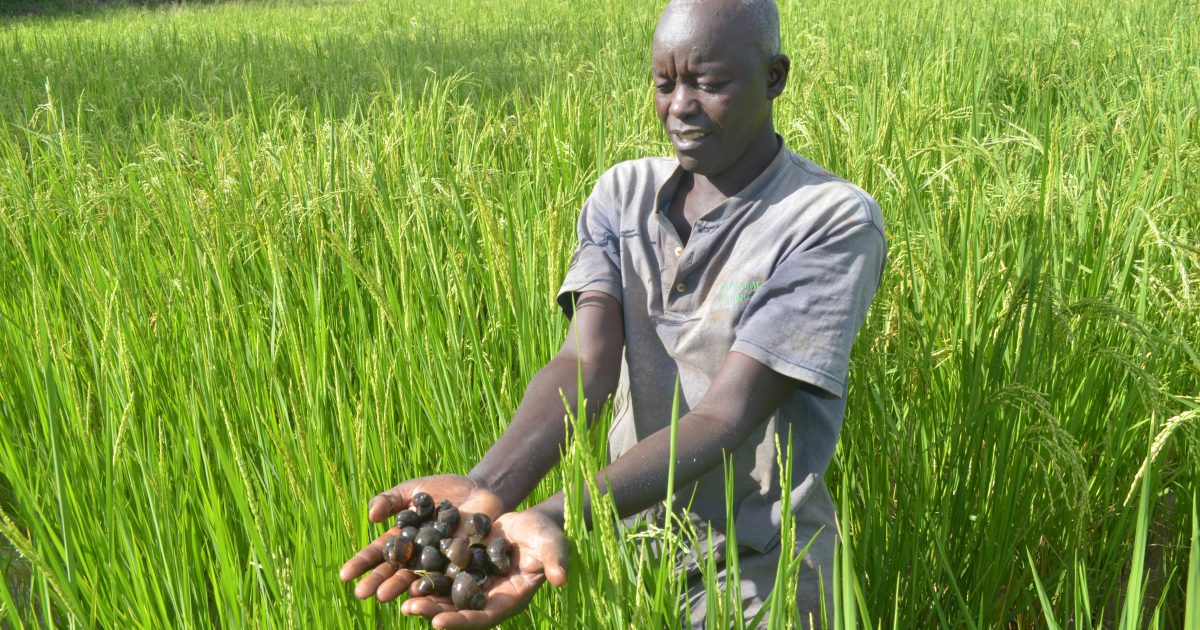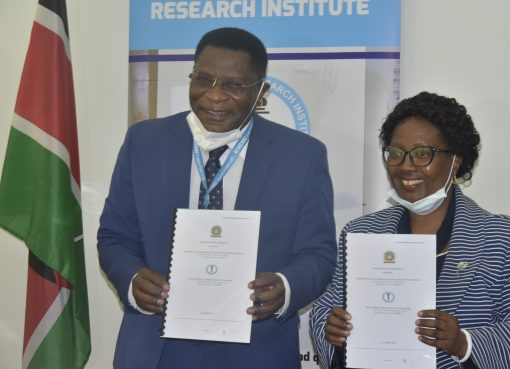
For the last three years, a group of small scale rice farmers in Murang’a County have been counting losses occasioned by snails.
About 50 farmers affiliated to Thathawa irrigation scheme in lower parts of Kiharu constituency have decried increase of snails in their farms that destroy their crops.
The farmers now claim that the snails migrated from a neighbouring farm owned by a foreigner who rears the pests for export.
One of the farmers, Peter Irungu told KNA that the snails started appearing in his farm back in 2015 and they have spread fast to more than 80 acres of land under rice growing.
He noted that the pests have occasioned drastic reduction of rice production in his two-acre of land resulting to meager earnings.
Irungu remarked that before infestation by the snails he used to generate more than Sh350, 000 from his two acres.
He said the snails affected the crop at early stages, adding that they have been forced to drain water at least to make them inactive.
“We have been unable to control the snails which multiple very fast. The option we adopt is to empty water from the rice pads forcing the snails to hibernate under soil,” added Irungu.
The farmers appealed for help from the county government claiming that rice farming was their only source of livelihood.
Rice is commonly grown in the neighbouring Kirinyaga County, but since 2009, a section of Murang’a farmers adopted it through irrigation with help of water drawn from River Sagana.
In 2005, the Ministry of Water provided funds to support horticultural farming in Nyangathi area but some farmers put their farms under rice farming.
Another farmer Catherine Syovata narrated that rice farming is more profitable despite losses occasioned by the snails.
She said some agricultural officers who had visited their farms were of little help, while appealing for more assistance from the government.
The farmers also want assistance to get their own water specifically for rice farming, noting that currently they were sharing the rare commodity with so many other farmers.
“If we can get our pipes and tap water for our farms, it will help us put more acres under rice growing. Currently we share water with farmers who are growing horticultural crops,” said Syovata.
Meanwhile, poor road network linking farms in the area continue to subject rice farmers to exploitation by brokers who buy their produce at low prices.
“We sell our rice to middle men who visit our farms during harvesting. If we can have better roads we could be able to transport our produce directly to markets for better prices,” the farmers noted.
By Bernard Munyao





